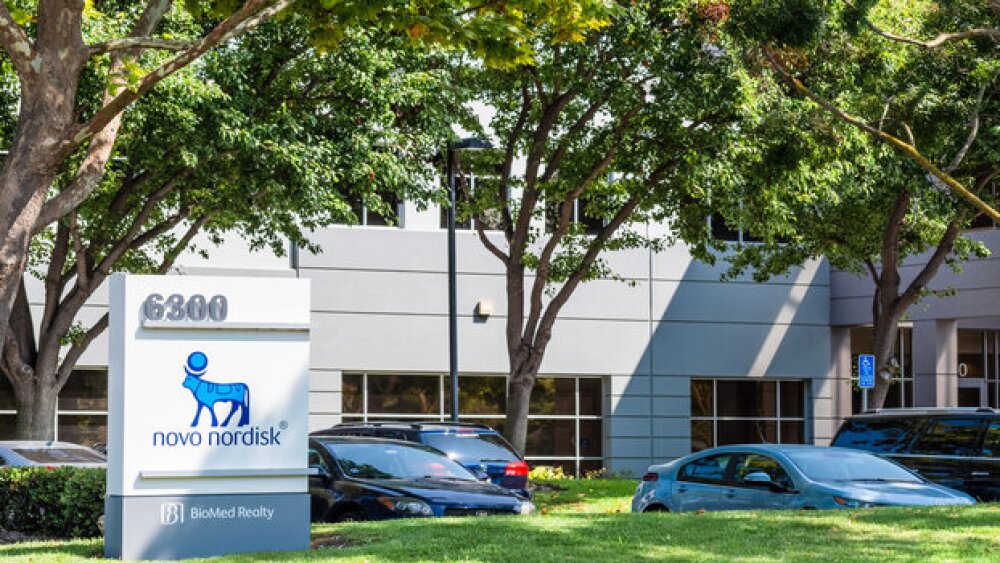Orchard Therapeutics announced data from an ongoing proof-of-concept clinical trial evaluating the safety and efficacy of OTL-203, a gene therapy for the treatment of mucopolysaccharidosis type I developed at the San Raffaele-Telethon Institute for Gene Therapy in Milan.
- Six of Eight Patients Treated to Date with Follow-up Out to 12 Months in First Patient to Receive Treatment
- Evidence of Engraftment and Peripheral Blood Alpha-L-iduronidase (IDUA) Enzyme Overexpression Across Cohort
BOSTON and LONDON, September 4, 2019 - Orchard Therapeutics (Nasdaq: ORTX), a leading commercial-stage biopharmaceutical company dedicated to transforming the lives of patients with serious and life-threatening rare diseases through innovative gene therapies, today announced data from an ongoing proof-of-concept clinical trial evaluating the safety and efficacy of OTL-203, a gene therapy for the treatment of mucopolysaccharidosis type I (MPS-I) developed at the San Raffaele-Telethon Institute for Gene Therapy (SR-Tiget) in Milan. The results presented in an oral presentation at the Society for the Study of Inborn Errors of Metabolism (SSIEM) symposium include up to 12 months of follow-up for the first patient treated.
MPS-I is a progressive and often life-threatening inherited lysosomal storage disorder affecting children, with the most severe form known as Hurler syndrome. Patients with MPS-I often suffer from a constellation of devastating symptoms, including neurocognitive impairment, skeletal deformity, loss of vision and hearing, and cardiovascular and pulmonary complications.
Maria Ester Bernardo, M.D., Ph.D., co- principal investigator at SR-Tiget commented, “We have been making good progress with the MPS-I clinical trial and are encouraged by these interim results, with multiple patients achieving stable engraftment of gene-corrected blood stem cells and expression of the IDUA enzyme and promising preliminary clinical effects in the patient with 12 months of follow-up. We look forward to completing enrollment and formally assessing proof of concept for this investigational new therapy for patients with this often-fatal condition.”
Interim Study Results
As of the date of last follow-up, six patients with the severe Hurler subtype of MPS-I have been treated with the cryopreserved formulation of OTL-203 gene therapy. All treated patients were followed for a minimum of two months, with the longest follow-up extending out to 12 months. At the time of treatment, patients ranged in age from 14 months to 35 months. Five out of six patients had previously been treated with enzyme replacement therapy (ERT) and discontinued ERT treatment three weeks prior to enrollment, consistent with trial protocol.
The primary endpoints of the trial are safety, hematological engraftment by day 45 following treatment and preliminary efficacy as measured by IDUA enzyme activity (up to supraphysiologic levels) at one-year post-treatment. Treatment with OTL-203 demonstrated:
• Gene therapy and the selected conditioning regime were well-tolerated.
• Rapid hematologic reconstitution, with neutrophil and platelet engraftment within three
weeks following treatment.
• Engraftment in the bone marrow and periphery by assessment of the vector copy
number.
• Supranormal IDUA enzyme expression in peripheral blood, with the first patient treated achieving levels 10 times above the normal range and stable over time up to 12 months post gene therapy.
Key secondary and exploratory endpoints include normalization of urinary glycosaminoglycans (GAGs), growth velocity and effects on motor and cognitive function at one- and two-years post-treatment.
• For the first two treated patients, with 12 months and six months of follow-up, respectively:
o Rapid metabolic correction of GAG levels in the urine and cerebrospinal fluid was observed, reflecting restoration of IDUA enzyme expression in the periphery and in the central nervous system.
• For the patient with 12 months of follow-up:
o Preliminary clinical evaluation showed signs of resumed growth, improved motor skills and a stable cognitive score.
“The data emerging from the MPS-I program adds to the growing body of evidence that our approach – the expression of the targeted gene delivered via gene-modified blood stem cells – has the potential to permanently correct multiple neurometabolic disorders,” said Andrea Spezzi, MBBS, FFPM, chief medical officer of Orchard. “We believe our gene therapies could fundamentally change the lives of patients born with MPS-I and other devastating and rapidly progressive diseases affecting the central nervous system and remain committed to advancing our programs in this area as quickly as possible.”
The proof-of-concept study is ongoing and expected to enroll eight patients by the first half of 2020, with primary endpoint results reported after one year of follow-up.
About MPS-I and OTL-203
Mucopolysaccharidosis type I (MPS-I) is a rare inherited neurometabolic disease caused by a deficiency of the IDUA (alpha-L-iduronidase) lysosomal enzyme required to break down glycosaminoglycans (also known as GAGs or mucopolysaccharides). The accumulation of GAGs across multiple organ systems results in the symptoms of MPS-I including neurocognitive impairment, skeletal deformity, loss of vision and hearing, hydrocephalus, and cardiovascular and pulmonary complications. MPS-I occurs at an overall estimated frequency of one in every 100,000 live births.1 There are three subtypes of MPS-I; approximately 60 percent of MPS-I patients have the severe Hurler subtype and, when untreated, these patients rarely live past the age of 10.Id Treatment options for MPS-I include hematopoietic stem cell transplant and
chronic enzyme replacement therapy, both of which have significant limitations. Though early intervention with enzyme replacement therapy has been shown to delay or prevent some clinical features of the condition, it has only limited efficacy on neurological symptoms. OTL-203 is an ex vivo, autologous, hematopoietic stem cell-based gene therapy being studied for the treatment of MPS-I. Orchard was granted an exclusive worldwide license to intellectual property rights to research, develop, manufacture and commercialize the gene therapy program for the treatment of MPS-I developed by the San Raffaele-Telethon Institute for Gene Therapy in Milan, Italy.
About Orchard
Orchard Therapeutics is a fully integrated commercial-stage biopharmaceutical company dedicated to transforming the lives of patients with serious and life-threatening rare diseases through innovative gene therapies.
Orchard’s portfolio of ex vivo, autologous, hematopoietic stem cell (HSC) based gene therapies includes Strimvelis®, a gammaretroviral vector-based gene therapy and the first such treatment approved by the European Medicines Agency for severe combined immune deficiency due to adenosine deaminase deficiency (ADA-SCID). Additional programs for neurometabolic disorders, primary immune deficiencies and hemoglobinopathies are all based on lentiviral vector-based gene modification of autologous HSCs and include three advanced registrational studies for metachromatic leukodystrophy (MLD), ADA-SCID and Wiskott-Aldrich syndrome (WAS), clinical programs for X-linked chronic granulomatous disease (X-CGD) and transfusiondependent beta-thalassemia (TDT), as well as an extensive preclinical pipeline. Strimvelis, as well as the programs in MLD, WAS and TDT were acquired by Orchard from GSK in April 2018 and originated from a pioneering collaboration between GSK, Fondazione Telethon and Ospedale San Raffaele initiated in 2010.
Orchard currently has offices in the U.K. and the U.S., including London, San Francisco and Boston.
Forward-Looking Statements
This press release contains certain forward-looking statements which are made pursuant to the safe harbor provisions of the Private Securities Litigation Reform Act of 1995. Such forwardlooking statements may be identified by words such as “anticipates,” “believes,” “expects,” “intends,” “projects,” and “future” or similar expressions that are intended to identify forwardlooking statements. Forward-looking statements include express or implied statements relating to, among other things, planned marketing and licensing application submissions and next steps for Orchard’s programs, the therapeutic potential of Orchard’s product candidates, including OTL-203 for the treatment of MPS-I, and Orchard’s expectations regarding the timing of announcement of clinical data or enrollment in clinical trials for its product candidates, including OTL-203, the likelihood that such data will be positive and support further clinical development and regulatory approval of its product candidates, and the likelihood of approval of such product candidates by the applicable regulatory authorities. These statements are neither promises nor guarantees, but are subject to a variety of risks and uncertainties, many of which are beyond Orchard’s control, which could cause actual results to differ materially from those contemplated in these forward-looking statements. In particular, the risks and uncertainties include, without limitation: the risk that any one or more of Orchard’s product candidates, including OTL-203, will not be successfully developed or commercialized, the risk of cessation or delay of any of Orchard’s ongoing or planned clinical trials, the risk that prior results, such as signals of safety, activity or durability of effect, observed from preclinical studies or clinical trials will not be replicated or will not continue in ongoing or future studies or trials involving Orchard’s product candidates, the delay of any of Orchard’s regulatory submissions, the failure to obtain marketing approval from the applicable regulatory authorities for any of Orchard’s product candidates, the receipt of restricted marketing approvals, and the risk of delays in Orchard’s ability to commercialize its product candidates, if approved. Given these uncertainties, the reader is advised not to place any undue reliance on such forwardlooking statements.
Other risks and uncertainties faced by Orchard include those identified under the heading “Risk Factors” in Orchard’s annual report on Form 20-F for the year ended December 31, 2018 as filed with the U.S. Securities and Exchange Commission (SEC) on March 22, 2019, as well as subsequent filings and reports filed with the SEC. The forward-looking statements contained in this press release reflect Orchard’s views as of the date hereof, and Orchard does not assume and specifically disclaims any obligation to publicly update or revise any forward-looking statements, whether as a result of new information, future events or otherwise, except as may be required by law.
____________________
1 Beck et al. The Natural History of MPS I: Global Perspectives from the MPS I Registry. Genetics
in Medicine 2014, 16(10), 759
Contacts
Investors
Renee Leck
Director, Investor Relations
+1 862-242-0764
Renee.Leck@orchard-tx.com
Media
Molly Cameron
Manager, Corporate Communications
+1 978-339-3378
media@orchard-tx.com
Fondazione Telethon press office
HAVAS PR Milan
Thomas Balanzoni
Ph. 02 85457047 – cell. 3463204520
e-mail: thomas.balanzoni@havaspr.com
IRCCS Ospedale San Raffaele
Press office
Gea Gardini – Marta Ammoni
Ph. 02 2643 6255/4466 - 334
6090384
e-mail: ufficio.stampa@hsr.it
web: www.hsr.it




